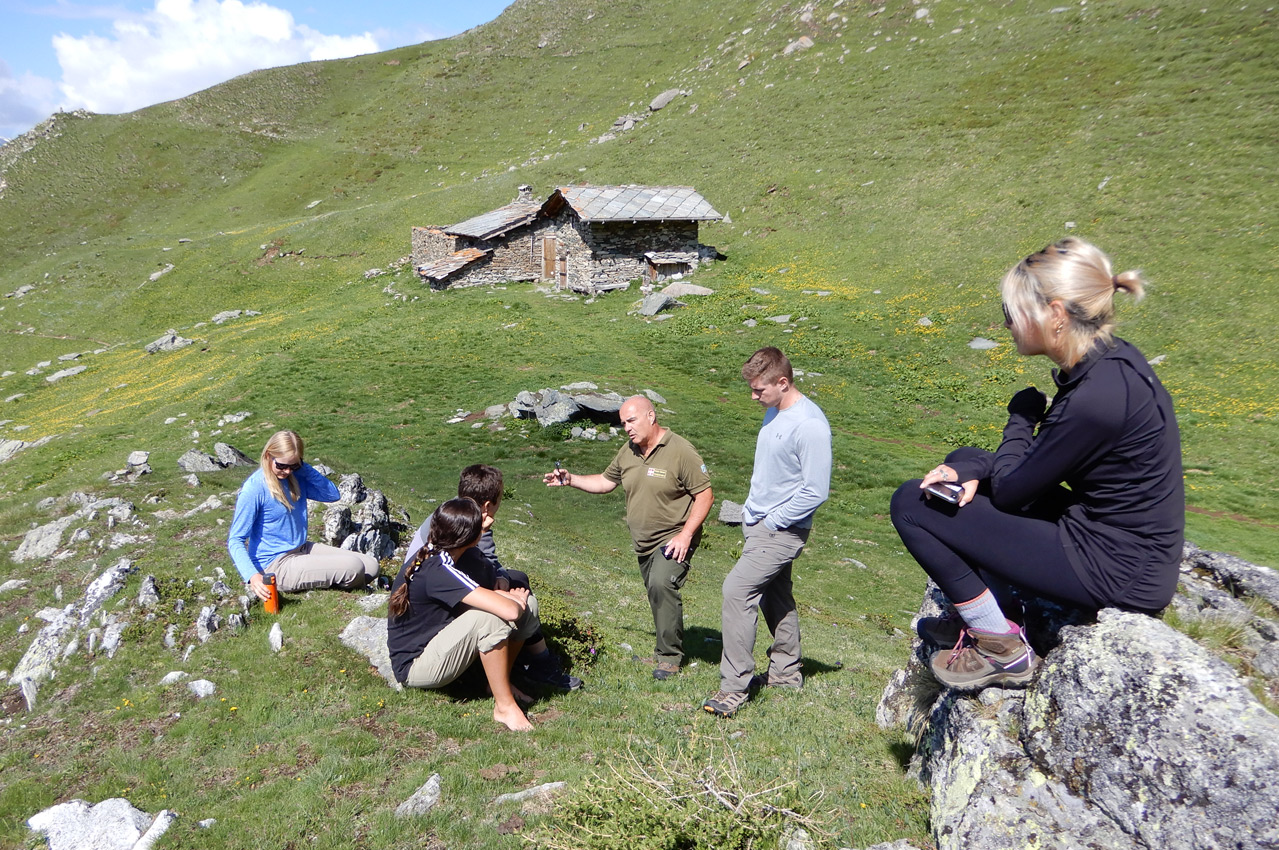About the Ecology, Management & Restoration of Rangelands Emphasis
This degree emphasis prepares you for jobs in which you’ll inventory soils, plants, and animals; develop resource management plans with agencies or private firms; help restore degraded lands; or manage a ranch or preserve. You may work for government agencies, non-profit and conservation organizations, or private landowners.
Ecology, Management & Restoration of Rangelands Courses
You’ll work with your adviser to create a course plan that includes required core and elective classes. Ecology, management, and restoration of rangelands course options include:
- Rangeland Plant Communities
- Grazing Ecology and Management
- Restoration and Management of Wildland Vegetation
- Rangeland Inventory and Monitoring
- Conservation of Natural Environments
- Field Botany
- Natural Resources Ecology
- Ecological Surveys and Sampling
Courses required to complete a bachelor of natural resources with an ecology, management, and restoration of rangelands emphasis at the University of Arizona are subject to change, so remember to meet with your adviser regularly to review your course plan.
Checklist and 4-year plan for students with Tier General Education Requirements Fall 2021 and before
- Checklist for Ecology, Management, and Restoration of Rangelands emphasis (Fall 2021)
- Sample 4-year plan for Ecology, Management, and Restoration of Rangelands emphasis (Fall 2021)
Checklist and 4-year plan for students with General Education Requirements Spring 2022 and after
- Checklist for Ecology, Management, and Restoration of Rangelands emphasis (post Spring 2022)
- Sample 4-year plan for Ecology, Management, and Restoration of Rangelands emphasis (post Spring 2022)
More Information About This Degree Program & Career Paths
- Watch this video to see rangeland ecology students in action.
- Watch this video to learn more about a career in rangeland management.
- Read an article about careers in Cooperative Extension.
Elective units: The ecology, management, and restoration of rangelands emphasis provides the flexibility of 26 elective units. These are not graduation requirements. Instead, they are suggestions for selecting elective units that match your career and personal goals. Click on each job title below for specific course lists and terms offered. Remember to meet with your academic advisor to explore the best fit for you.
Federal Positions with Specific Course Requirements
- Biological Science Technician. Elective units needed: 0. This is an entry-level position that typically includes general resources management and invasive species control.
- Botanist. Elective units needed: 14. You'll work with endangered species, restore damaged ecosystems, combat invasive plants, measure responses of vegetation to grazing or prescribed fire.
- Ecologist. Elective units needed: 1. You'll focus on ecological relationships in rangeland ecosystems to perform monitoring, management, and research activities.
- Plant Protection Technician. Elective units needed: 0. An entry-levels position that typically includes work related to detection, inventory, mapping and control of invasive, weedy, and poisonous plant species.
- Rangeland Management Specialist. Elective units needed: 15. You'll work on federally-managed rangelands conducting activities such as vegetation management, monitoring, livestock production, and coordinated resources management.
- Range Technician. Elective units needed: 0. An entry-level position that typically includes conservation, regulation, and use of public lands for grazing, range research, and forest fire control.
- Soil Conservationist. Elective units needed: 8. Assist conservation organizations and private land owners to plan and carry out soil and water conservation activities.
- Wildlife Biologist: Elective units needed: 21. You'll perform wildlife management activities for federal government agencies.
University of Arizona Certificate with Specific Course Requirements
- Geographic Information Systems Certificate. Elective units needed: 10. You'll compile, represent, and analyze information about the world around us. You'll make maps, calculations of land area types, and proximity of different features from each other. These have become critical skills for entry-level positions.
Subject Matter Expertise without Specific Course Requirements
- Cooperative Extension Agent. Elective units needed: 15. You'll develop education and research programs to improve natural resources and agriculture practices performed by private ranchers and famers as well as public land managers.
- Environmental Education and Communication. Elective units needed: 9. You'll develop effective communication and teaching skills to help people understand and appreciate the complexity and potential of rangelands.
- Environmental Law and Policy. Elective units needed: 15. You'll contribute to the analysis and development of laws, policies, rules and regulations directing the use of public and private rangelands.
- Peace Corps. Elective units needed: 18. You'll develop skills to prepare for internationally based public service working with local stakeholders to enhance environmental understanding and local livelihoods.
- Restoration Ecologist. Elective units needed: 18. You'll apply ecological and agricultural principles to promote the recovery and sustainability of natural ecosystems.
Current Student? Connect with an Advisor
An academic advisor can help you choose classes, stay on track throughout your degree program, and provide the support you need during your academic journey.


